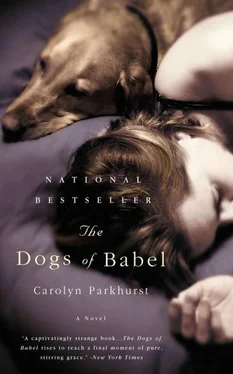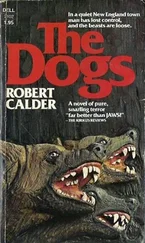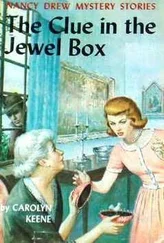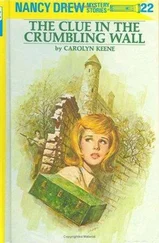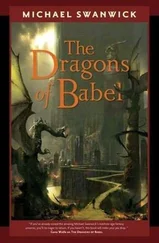Carolyn Parkhurst - The Dogs of Babel
Здесь есть возможность читать онлайн «Carolyn Parkhurst - The Dogs of Babel» весь текст электронной книги совершенно бесплатно (целиком полную версию без сокращений). В некоторых случаях можно слушать аудио, скачать через торрент в формате fb2 и присутствует краткое содержание. Город: New York, Год выпуска: 2003, ISBN: 2003, Издательство: Little, Brown and Company, Жанр: Детектив, на английском языке. Описание произведения, (предисловие) а так же отзывы посетителей доступны на портале библиотеки ЛибКат.
- Название:The Dogs of Babel
- Автор:
- Издательство:Little, Brown and Company
- Жанр:
- Год:2003
- Город:New York
- ISBN:978-0-7595-2806-2
- Рейтинг книги:3 / 5. Голосов: 1
-
Избранное:Добавить в избранное
- Отзывы:
-
Ваша оценка:
- 60
- 1
- 2
- 3
- 4
- 5
The Dogs of Babel: краткое содержание, описание и аннотация
Предлагаем к чтению аннотацию, описание, краткое содержание или предисловие (зависит от того, что написал сам автор книги «The Dogs of Babel»). Если вы не нашли необходимую информацию о книге — напишите в комментариях, мы постараемся отыскать её.
The Dogs of Babel — читать онлайн бесплатно полную книгу (весь текст) целиком
Ниже представлен текст книги, разбитый по страницам. Система сохранения места последней прочитанной страницы, позволяет с удобством читать онлайн бесплатно книгу «The Dogs of Babel», без необходимости каждый раз заново искать на чём Вы остановились. Поставьте закладку, и сможете в любой момент перейти на страницу, на которой закончили чтение.
Интервал:
Закладка:
“Oh, poor girl,” Lexy said. She went and sat down on the floor next to the dog and began petting her and speaking to her softly. I settled myself on the floor next to Lexy, and together we tried to soothe the shuddering dog.
“I’ve always wondered,” Lexy said, “if her fear of thunderstorms has anything to do with the storm she got lost in the day I found her.”
“Maybe,” I said. “But I think most dogs are afraid of the noise.”
“Did I ever tell you,” she said, “why I named her Lorelei?”
“No. I thought you just liked the name.”
“Well, I did. But I’d also been reading a lot of mythology right around that time, trying to come up with new ideas for masks. I was sick to death of doing Medusas and Bacchuses—would that be Bacchi?”
“Yes, I suppose it would be Bacchi with an i. Bacchae with an ae refers to his female worshipers, as in the title of the Euripides play… .” I was being deliberately pompous. Sometimes I liked to play up my academic-gasbag persona so that Lexy could poke holes in it.
“Right,” Lexy said, interrupting. “But getting back to my story…” We both laughed.
“Right,” I said. “Sorry.”
“So one of the myths I had come across was the story of Lorelei. It’s German. Do you know it?”
“No.”
“It’s about this beautiful woman who drowned herself because her lover was unfaithful, and then she became a mermaid and sat on a rock in the Rhine River and lured sailors to their deaths with her beautiful siren song.”
“So you read that and thought, what a perfect name for a puppy?”
“No, of course not. But when I first saw Lorelei shivering in the rain, half drowned, I thought she looked like kind of a tragic figure. And she always has that worried expression on her face, even when she’s happy. It just seemed to fit her.”
I imagined a woman with Lorelei’s dog-face sitting on a rock and howling an unearthly song.
“So did you ever make a Lorelei mask?” I asked. “The mythological Lorelei, I mean.”
“I did, but it didn’t come out that well. I was imagining her with this really harrowing, haunting look on her face, but it was hard to make it work with the eyeholes cut out. I was just never that happy with it.”
“Do you still have it?”
“No, I sold it to this German couple. They actually wanted something more American, like a Bill Clinton mask or something, for a souvenir, but once I heard their accents, I started doing a real hard sell on the Lorelei mask. They were familiar with the myth, which no one else had been, and I gave them a good deal on it.”
There was a loud clap of thunder, and Lorelei shuddered convulsively beneath my hand.
“Shh, girl,” I said. “It’s all right.”
But she would not be comforted. When Lexy and I went to bed, we let her climb up and lie between us, and all through the night, my sleep was troubled by her trembling and her whining. It wasn’t until the rain stopped and the morning sun showed the world washed and new that Lorelei’s body relaxed, and the danger past, she closed her eyes to sleep.
My last weekend with Lexy was a quiet one, full of easy lulls when she could have told me the secret she carried. It was fall, yard sale season, and we spent Saturday afternoon driving through neighborhoods we’d never been to and trying to decipher the handwriting on signs where the writer had run out of space and had had to cram all the details into the bottom corner. It was something we liked to do together, a happy reminder of the way we’d met. I bought a sweater vest Lexy didn’t like and a clock for my study; Lexy bought an electric coffee grinder and an ice-cube tray that made ice cubes in the shape of a heart. She said she liked the kitschiness of it. It’s the hopefulness of these items that gets me now. She was still imagining a future where we would drink fresh-ground coffee together in the mornings. Where we would slip tiny ice hearts into our drinks to see how they’d float.
At our last stop of the day, Lexy paused in front of a table of children’s toys. She picked up a plastic Halloween mask, the kind that’s held in place with a rubber band. It was a Frankenstein mask, cheaply made and garishly colored.
“I think yours are nicer,” I said to Lexy, talking quietly so that the woman sitting in the lawn chair a few feet away wouldn’t hear.
“Yeah, but these are fun. They’re like everyone’s memory of their childhood Halloweens. I think I’m going to get it.”
She paid the woman a quarter, and we walked across the lawn to the car.
“I think,” Lexy said, and it makes my chest ache to think of it, “maybe I’ll start collecting these.”
Sunday, we slept late and Lexy made pancakes, working from a cookbook.
“I never knew these were so easy,” she said. “My mom never made anything from scratch, and I used to be so jealous when I slept over at friends’ houses and they had the kind of moms who made pancakes in the morning. But it turns out it’s really easy.”
“See?” I said. “You could be a mom.”
She looked at me for a long moment, and I think she might have told me then. But she didn’t. She turned away to ladle more batter into the pan, and what she said was, “Yeah, I guess I could.”
I filed that away in my brain as a small triumph. I thought I’d bring it out another time, if the topic of having children came up again. I ate my pancakes happily, pleased with this small concession. Maybe there’s hope, I thought.
We went for a walk in the afternoon, and then to a movie. We had dinner at our favorite pizza place. Sunday was a lovely day. And Monday was fine.
But Tuesday. Tuesday is when we had our last fight.
FORTY-ONE
We’re getting nearer. We’re nearing the end, of course you know that, you’ve known from the beginning, from the very first sentence I spoke. I’m tensing up as we get closer, I can feel myself wanting to slow down and to speed up at the same time.
I had a slow day at work on Tuesday—I was supposed to be finishing up a symposium paper, but I kept getting distracted. I found myself, at one point, thinking about the myth of Lorelei. The image that kept popping into my mind was the one I had envisioned the night of the storm—a combination of the two Loreleis, the dog and the siren, a woman with flowing hair and a deadly song, her human face replaced with a Rhodesian Ridgeback’s earnest, furrowed features. It was a captivating image, at least in my mind, and it started me thinking that maybe this could be Lexy’s next big project. She’d seemed a bit aimless since finishing the Macbeth masks over the summer, and I thought this might be the answer. It drew on some elements she’d worked with in the past, and it allowed for endless combinations; she had all of mythology to work with, and all the dogs of the world. Didn’t the Egyptians have a dog-faced god? Why not carry that over to other mythologies? I imagined Medusa with the snarling face of a Doberman, her snaky hair sprouting from the glossy black fur of her forehead. I imagined Botticelli’s Venus rising from a clamshell with the sweet face of a sheltie. I made some clumsy sketches. I drew a pug-faced Cupid, a dalmatian-faced Athena bursting forth from the Labrador forehead of her father, Zeus. I drew Hermes with his winged hat resting gently on the ears of a Jack Russell terrier. I was quite taken with the idea. My drawings were mediocre, but surely Lexy would be able to do a better job.
I looked at the clock. It was four o’clock, and it was clear I wasn’t going to get any more real work done that day. I left my office and headed for the library. I found an illustrated book on world mythology and one on dog breeds. Using the photocopy machine and some scissors and tape borrowed from the reference desk, I created a few prototypes. Here was Poseidon with the face of a Portuguese water dog. Here was Hades with a bulldog’s bloated grimace. I laughed out loud at what I had made, causing several nearby students—it was close to midterms, and the library was packed—to cast annoyed looks in my direction. The images I’d created were crude and out of proportion, but there was something about them that made sense to me. At least they would give Lexy some idea of what I had in mind. I made one final picture, with a Ridgeback’s face on top of a siren’s body—I wasn’t able to find a picture of the German Lorelei, so I used one of the Greek sirens—and I headed home to show my creations to Lexy.
Читать дальшеИнтервал:
Закладка:
Похожие книги на «The Dogs of Babel»
Представляем Вашему вниманию похожие книги на «The Dogs of Babel» списком для выбора. Мы отобрали схожую по названию и смыслу литературу в надежде предоставить читателям больше вариантов отыскать новые, интересные, ещё непрочитанные произведения.
Обсуждение, отзывы о книге «The Dogs of Babel» и просто собственные мнения читателей. Оставьте ваши комментарии, напишите, что Вы думаете о произведении, его смысле или главных героях. Укажите что конкретно понравилось, а что нет, и почему Вы так считаете.
